Council
Council Chairmanship
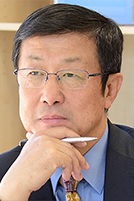
Xiansheng Sun (孙贤胜)
Chairman, ISETS Council; Former Secretary-General, International Energy Forum (IEF)Dr. Xiansheng Sun is the Chairman of the International Society for Energy Transition Studies (ISETS) and previously served as the fourth Secretary-General of the International Energy Forum. He has extensive experience with the China National Petroleum Corporation (CNPC), where he played a pivotal role in negotiating and signing numerous collaborative contracts for projects both domestically and internationally. Additionally, Dr. Sun served as President of the CNPC Research Institute of Economics and Technology (RIET), the corporation’s think tank, until the end of 2015.
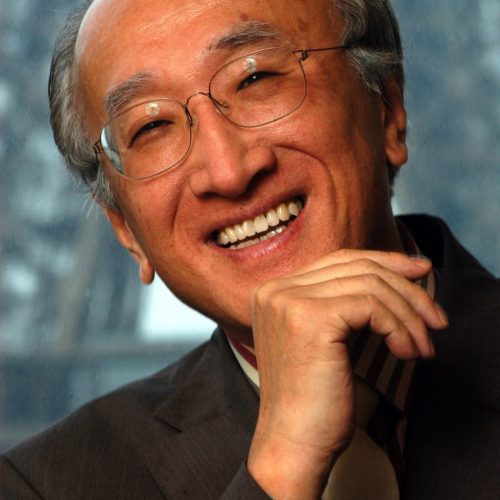
Nobuo Tanaka
Co-Chair, ISETS Council; Executive Director Emeritus, International Energy Agency (IEA)Nobuo Tanaka is the Executive Director Emeritus of the International Energy Agency (IEA) and currently serves as Chairman of the steering committee for the Innovation for Cool Earth Forum (ICEF). As IEA’s Executive Director (2007-2011), he led the collective release of oil stocks in 2011. Beginning his career in 1973 at Japan’s Ministry of Economy, Trade, and Industry (METI), he held key roles, including Director-General of the Multilateral Trade System Department. As Minister for Industry, Trade, and Energy at Japan’s Embassy in Washington DC, he addressed major US-Japan trade issues. He also twice served as Director for Science, Technology, and Industry at the OECD in Paris. Now CEO of Tanaka Global Inc, he advises Japanese and international companies.
Council Members
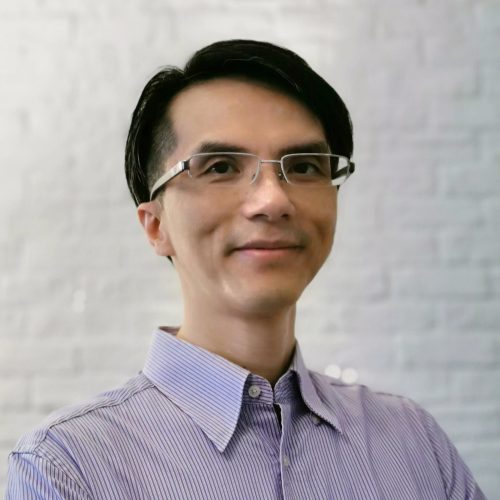
James Tsun Se Cheong
Hang Seng University of Hong Kong, Hong KongDr. Cheong is an Associate Professor at the Hang Seng University of Hong Kong and an Adjunct Associate Professor at the University of Technology Sydney. He received his PhD in Economics from the University of Western Australia where he also worked as a Postdoctoral Research Fellow in economic modelling. He also holds a Master of Applied Finance from Western Sydney University, a Master’s degree in International Relations from Griffith University and a Bachelor’s degree (Honours) in Engineering from the Hong Kong Polytechnic University. He has conducted research in many different areas of economics and finance. The findings of his research studies have been published in many prestigious journals. He is the Associate Editor of the Journal of the Asia-Pacific Economy, the Treasurer and Founding Member of the International Society for Energy Transition Studies (ISETS), and a member of the Executive Committee of the Chinese Economics Society Australia. He has extensive knowledge in Computable General Equilibrium (CGE) analysis and applied economic modelling (GEMPACK ORANI-G, RunGDYN, RunGTAP, TERM). Moreover, he has comprehensive knowledge of state-of-the-art analytical techniques such as machine learning, artificial neural network analysis, deep learning, AI image and large language models (LLMs). He has provided professional training in economics to various professional associations and corporations in Hong Kong and has participated in many consultancy projects and TV interviews.
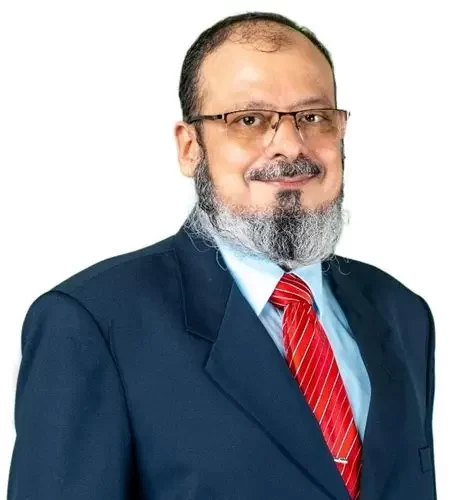
Shabbir H. Gheewala
Joint Graduate School of Energy and Environment (JGSEE),ThailandShabbir H. Gheewala is a professor at the Joint Graduate School of Energy and Environment (JGSEE), Thailand where he teaches Life Cycle Assessment and has led the Life Cycle Sustainability Assessment Lab for almost 25 years. His research focuses on sustainability assessment of energy systems; sustainability indicators; circular economy; and certification issues in biofuels and the agro-industry. He is a national expert on life cycle inventory as well as product carbon and water footprinting in Thailand. He mentors the research network on sustainability assessment and policy for food, fuel and climate change in Thailand.
With over 350 papers in peer reviewed journals, he is the Specialty Chief Editor of Quantitative Sustainability Assessment at Frontiers in Sustainability, and on the editorial boards of Sustainable Production and Consumption (Elsevier), Energy Nexus (Elsevier), International Journal of Life Cycle Assessment (Springer), and a host of other journals.
Along with graduate teaching and research, Shabbir has worked extensively with industry in Thailand providing training and consultancy to scores of companies with aspirations towards improvements in sustainability. He also sits on several national committees providing technical support to policy-making bodies in Thailand. He has conducted national projects on sustainability and competitiveness for several critical supply chains in Thailand with the support of agencies such as the National Science and Technology Development Agency (Ministry of Science and Technology), Agricultural Research and Development Agency, Department of Alternative Energy Development and Efficiency (Ministry of Energy) and the National Research Council of Thailand.

Farhad Taghizadeh-Hesary
Tokai University, JapanDr Farhad Taghizadeh-Hesary is an associate professor of economics at Tokai University in Japan, and a visiting professor at Keio University, Japan. He obtained a PhD in energy economics from Keio University in 2015 with a scholarship from the government of Japan (MEXT). He taught as an assistant professor at Keio following the completion of his PhD until March 2018 and as an assistant professor at the faculty of political science and economics of Waseda University 2018-2020. He is a grantee of the Excellent Young Researcher (LEADER) status from the Ministry of Education, Culture, Sports, Science, and Technology (MEXT) of Japan with a 5 years’ competitive research grant (2019-2024). Presently he is also a visiting professor at Chiang Mai University (Thailand) and a distinguished research fellow and external scientific member at the University of Economics Ho Chi Minh City (Vietnam). Dr Taghizadeh-Hesary has published on a wide range of topics, including energy economics, energy policy, green finance, small and medium-sized enterprises finance, monetary policy, banking; Asian and Japanese economy. Currently, he is serving as Associate Editor of Finance Research Letters (SSCI), Associate Editor of Singapore Economic Review (SSCI), Associate Editor of Global Finance Journal (ESCI, Scopus) and Editor of Cogent Business & Management (Taylor & Francis, Scopus).

Llewelyn Hughes
Australian National University, AustraliaDr. Hughes is a Professor at the Crawford School of Public Policy, Australian National University (ANU) and senior consultant in energy & environment for GR Group, a government affairs and public policy consultancy headquartered in Tokyo. His academic work is on how public policies affect, and are affected by, the low-carbon energy transition, with a particular focus on the Asia-Pacific region. An ongoing project examines how the rise of Global Value Chains affect the ability of governments to promote green growth industries. Before joining the ANU Dr. Hughes worked at the Elliott School of International Affairs at George Washington University (GWU) in Washington DC, and before that the Consortium for Energy Policy Research at the John F. Kennedy School of Government, Harvard University. He has also been a visiting fellow at the Institute of Advanced Sustainability Studies in Potsdam, the Environmental Policy Research Centre (Forschungszentrums für Umweltpolitik) at Freie Universität, the Centre of Geopolitics of Energy and Raw Materials (CGEMP) at Université Paris Dauphine, Tokyo Foundation, Japan Business Federation (Keidanren), and the Japan Institute for Energy Economics (IEEJ).

Qiang Ji
Chinese Academy of Sciences,ChinaDr. Ji’s research interest covers broad areas of big data and energy finance, energy economics and energy strategy management, forecast modelling and risk management and financial econometrics. He is an Associate Professor in the Chinese Academy of Sciences (CAS). He has published more than 100 articles in peer-reviewed journals in energy, finance and economics. He is the principle investigator of over ten grants from the National Natural Science Foundation of China (NSFC) and CAS. He is an associate editor for International Review of Financial Analysis, the co-founder of China Energy Finance Network, and the Council Member of Chinese Society of Low Carbon Development Management and Chinese Society of Energy Resources Systems Engineering. He received his PhD in Management Science and Engineering from CAS in 2011.

Tatiana Mitrova
Columbia University, USAScientific advisor at the Energy Research Institute of the Russian Academy of Sciences (ERI RAS), Research Scholar at the Center on Global Energy Policy at Columbia University, Associate Research Fellow at Russia/NIS Center in Institut Francais des Relations Internationales (IFRI), Distinguished Research Fellow at Institute of Energy Economics, Japan (IEEJ).

Victor Nian
Centre for Strategic Energy and Resources, SingaporeDr. Victor Nian is CEO of Centre for Strategic Energy and Resources . Untill recently, he was a Senior Research Fellow of the Energy Studies Institute (ESI), National University of Singapore and Adjunct Professor at Tianjin University of Commerce. Dr. Nian is also the Founding President of the Academy of Applied Systems Science and the Executive Director of UNiLAB on Integrated Systems Analysis Tools. Both the Academy and UNiLAB are established in Singapore with more than 15 partnering organisations worldwide. Dr. Nian holds a PhD in Mechanical Engineering and Bachelor in Electrical Engineering with a minor in Management of Technology, all from NUS. Dr. Nian has more than 10 years’ experience in energy policy research especially in industrial policy and nuclear energy policy. Dr. Nian has also developed various energy analysis tools and energy systems models for the industry, and government and academic organisations. Prior to joining the ESI, Dr. Nian has worked in a range of businesses including software development, ergonomics consultancy, patenting and technology transfer in Nanyang Technological University, and research and development engineer in Toshiba.

Jinho Park
Korea Energy Economics Institute, South KoeraDr. Jin Ho Park is a Research Fellow at Korea Energy Economics Institute (KEEI) and Head of Gas Policy Research Team of KEEI. He has published research papers regarding LNG pricing, LNG Market trends, Natural gas trading hubs in Asia, and LPG market in S. Korea. He has also focused on the research regarding gas market deregulation in S. Korea. He received Ph. D. in Economics at University of Missouri-Columbia in the United States.
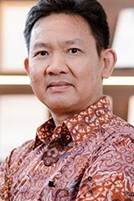
Han Phoumin
Economic Research Institute for ASEAN and East Asia (ERIA)Dr. Phoumin is Energy Econoimst at Economic Research Institute for ASEAN and East Asia (ERIA). He has more than 20 years of professional experience working at various international and inter-governmental organisations and multi-disciplinary research consortiums related to energy market and technologies, environment, integrated water resource management, governance, and economic development in the region of ASEAN and East Asia. He specialised in economic development and policy and applied econometrics. Much of his career in the past 12 years revolved around power sectors, especially with sustainable hydropower development, renewable energy policy research (i.e., biomass power generation competitiveness studies, solar and wind), energy efficiency and conservation, clean coal technology, energy security, and energy demand and supply forecasting. He has been serving as an expert for APEC on energy security for oil and gas emergency responses since 2013 until now. He is also one of the peer review experts for Peru’s energy subsidy removal commissioned by USAID in 2015. He also has led a number of projects in the EAS region related to energy policy and planning, and also contributed articles and special issues for academic journals.

Bertrand Rioux
Two Ravens Consulting, Canada; Formerly KAPSAR, Saudi ArabiaBertrand Rioux is the director of Two Ravens Energy & Climate Consulting, and formerly a Research Fellow at KAPSARC, an independent energy economics & policy think tank in Saudi Arabia. His work focuses on climate change mitigation strategies for the energy sector with a focus on technology for emissions allocation agreements, verification tools and carbon footprint tracking. He holds advanced degrees in Atmospheric Physics & Chemistry, Marine Science & Engineering, and Blockchain & Digital Currency.
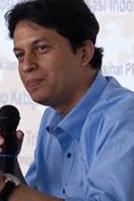
Maxensius SAMBODO
Indonesian Institute of Sciences (LIPI), IndonesiaMaxensius Tri Sambodo is a senior researcher at the Indonesian Institute of Sciences (LIPI) Economic Research Center. He is also a visiting fellow alumnus from the Institute of Southeast Asian Studies (ISEAS), Singapore. His research interests are on economic development, energy, environment, and natural resources. He obtained a bachelor’s degree in Economics from Padjadjaran University, Indonesia, his Masters in International and Development Economic from the Australian National University, Australia, and his Ph.D. in Public Policy from the National Graduate Institute for Policy Studies (GRIPS), Japan. His latest book publication appeared in: From Darkness to Light: Energy Security Assessment in Indonesia’s Power Sector published by ISEAS Yusof Ishak Institute, Singapore 2016; and for journal appeared in Energy Policy 2019, 123(132):113-121, with co-authors with Rio Novandra, on the title the state of energy poverty in Indonesia and its impact on welfare. https://link.springer.com/book/10.1007/978-981-16-3611-0

Vinod Sharma
IGIDR, IndiaProf. Vinod Kumar Sharma is an Environmental Engineer with a Ph.D. degree from Indian Institute of Technology Bombay and has a Professional Career of over 34 years. His Experience in Academic Administration duties includes, Dean at IGIDR; HOD at SNDT Women’s University, Member, BOM, IGIDR and membership of several administrative committees. International experience that includes his work at the World Bank, USA and at NIES, the Environment Ministry of Japan, Tsukuba, Japan and collaborations in several other countries.Completed research projects for international and Indian organizations including the UNEP, UNDP, UNCTAD, UN-ESCAP, CREED, IIED, the World Bank, ICEF, SICI, JBIC, ADB, APO, AIST, JETRO, ERIA, IDE; Many Indian Ministries including Environment, Energy, Planning Commission; Corporate Sector and NGOs. He was invited as Chair, Keynote Speaker, Panel Member in academic events in India and abroad. He has more than 150 publications in peer reviewed journals, newspapers and magazines, books and policy reports. His editorships include international journals published from Germany, The Netherlands, USA and Japan. He contributed to policy making at the city, state, national and international levels through policy reports on Renewable Energy, Air Pollution, Maharashtra State Development Report; State of Environment Report. Prof. Sharma’s broad area of research is “Sustainable Development” with focus on Energy and Environment. His initiatives include publication of IJSI and Savitarka; d organization of the ISSF events; Indian Society for Life Cycle Assessment (ISLCA), Membership of UNEP’s International Life Cycle Board (ILCB).
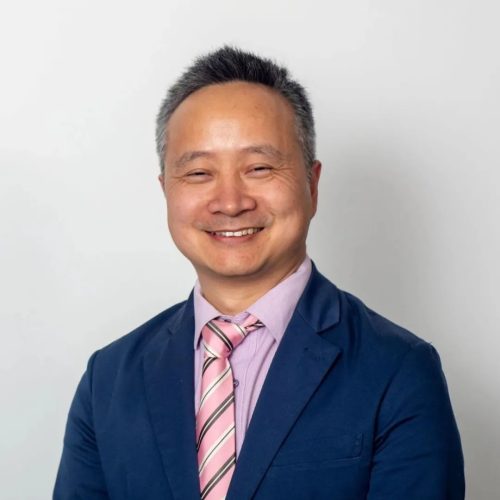
Xunpeng (Roc) Shi
University of Technology Sydney, Australia/President of ISETSXunpeng (Roc) Shi is a Professor of Energy and Environmental Economics and Sustainability and Research Principal at the Australia-China Relations Institute, UTS; President of the International Society for Energy Transition Studies (ISETS); and a Council Member (President, 2016-2018) of the Chinese Economics Society Australia (CESA). His research interests cover the full spectrum of energy, climate change and other environmental issues in economics, policy, and sustainable development, with regional focuses on Australia, China, ASEAN , and Northeast Asia. He was listed in 2020 as Australia’s leading researcher in the field of Environmental Law and Policy, the top 2% of the world’s top scientists in the energy field, and the top 2% of authors in the world’s largest database of economists (RePEc). He serves as a Specialty Chief Editor of Frontiers in Environmental Economics, a co-Editor of Journal of the Asia Pacific Economy (SSCI), an associate editor of China and World Economy (SSCI), Energy Economics (SSCI, A*), Energy Engineering (EI), Journal of Environmental Economics (in Chinese), and other editorial roles for more than 10 journals. He has worked in the energy sector for more than 25 years in roles spanning industry, government and research institutes in Australia, Brunei, China, Indonesia, Singapore, and an international organisation. He has advised international organisations, including ADB, and the International Group of LNG Importers (GIIGNL). Currently, he is an advisor to Global Gas Center (GGC), APEC Sustainable Energy Center (APSEC), and UN ESCAP and frequently participates in the United Nations and other international policy debates. Incredibly driven by his work, Roc’s ultimate aim is to promote the cost-efficient transition to a low carbon future while protecting vulnerable stakeholders through research, service and global leadership.
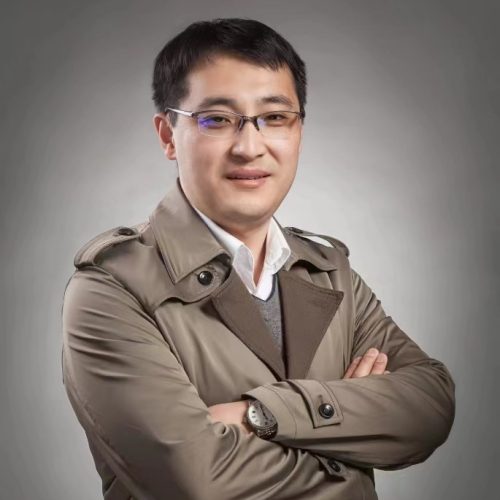
Yongping Sun
Huazhong University of Science and Technology, ChinaYongping Sun is a professor at the School of Economics and a Vice Dean of the Institute of State Governance, Huazhong University of Science and Technology. He is Co-director of the Collaborative Innovation Center for Carbon Emissions Trading Co-constructed by the Province and Ministry, chief expert of Major Projects of the National Social Science Fund, and Vice President of the Council of the International Society for Energy Transition Studies. He serves as an Executive Deputy Editor of Journal of Environmental Economics. His research focuses on global climate governance and emission trading system. He is renowned for his research on China’s emission trading system. In recent years, he has published more than 80 academic papers in top journals such as Science, Energy Economics, Applied Energy, Energy Policy, and other journals.
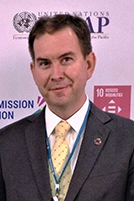
Michael Williamson
ESCAP, United NationsMichael Williamson is Section Chief in the Energy Division of the United Nations Economic and Social Commission for Asia and the Pacific (ESCAP). Michael works on regional cooperation for sustainable energy across ESCAP’s 53 member countries, spanning intergovernmental dialogue, technical assistance and research. Prior to this, Michael was the acting Director of ESCAP’s Subregional Office for South and South West Asia overseeing 10 countries of South and South West Asia. He was previously Chief of Staff and Senior Adviser to the Executive Secretary of ESCAP. He began his UN career in 2013 as the Head of the Asian and Pacific Centre for Transfer of Technology, ESCAP’s regional institution based in India.
Michael’s experience over the last 20 years covers the private sector, government and international organisations with a focus on sustainable development, energy, technology and climate change. He worked for Australian governments at state and federal level in climate change, sustainability and energy policy and in humanitarian assignments with the International Committee of the Red Cross.
Michael holds a Master of Science in Renewable Energy Technology from Loughborough University, UK, an honours degree in Civil Engineering from Monash University, Australia and a post graduate diploma in management from the Australian Institute of Management. He is a graduate of the UN leadership course at the United Nations Staff College.
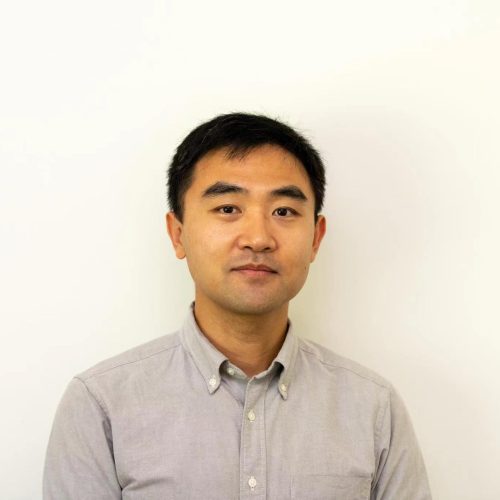
Muyi Yang
Asia Society Policy Institute (ASPI), AustraliaDr. Muyi Yang currently holds the position of Associate Director of Clean Energy at the Asia Society Policy Institute (ASPI), where he is responsible for leveraging ASPI’s analytical work and convening capacity to promote the transition towards a cleaner and more sustainable energy future in Asia.
Prior to joining ASPI, he worked at the University of Technology Sydney from 2016 to 2022, actively engaging in teaching, research, and consulting on diverse energy policy themes including electricity market reform, renewable energy, coal power phasedown, transport electrification, energy governance, and political economy. His main areas of focus are China, Southeast Asia, and Oceania. Furthermore, he worked at Ember, a global energy and climate think tanks between 2020 and 2023, and at NSW Trade and Investment from 2014 to 2015.
Muyi holds a PhD and a Master’s degree in energy policy, as well as a Bachelor’s degree in Applied Science.
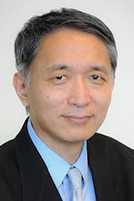
Yongping Zhai
Tencent, ChinaSpecial Advisor of Carbon Neutrality, Tencent. Former Chief of Energy Sector Group, Sustainable Development and Climate Change Department, Asian Development Bank. Dr. Yongping Zhai has been working on energy development in Asia and Africa for 25 years. He was in charge of overall energy policy coordination and technical support to ADB energy sector operations. He is also in charge of developing energy sector knowledge work for ADB and interacts with worldwide energy sector partners.
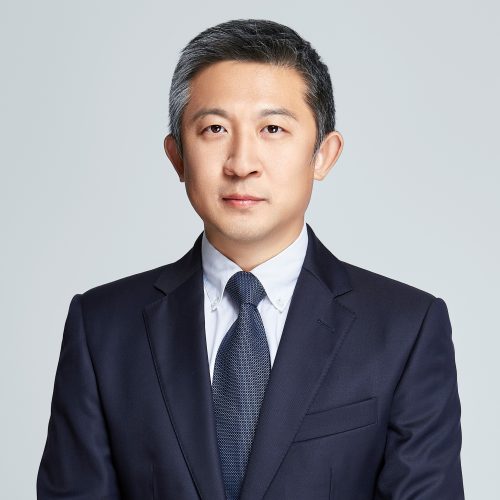
Dayong Zhang
Southwestern University of Finance and Economics, ChinaDayong Zhang is a Professor of Financial Economics at Southwestern University of Finance and Economics (China), the president of the Society for the Studies of Climate Finance (SSCF) in China, vice president of International Society for Energy Transition Studies (ISETS), the co-founder of China Energy Finance Network (currently the ISETS Energy Finance Network). His research interests cover energy finance, climate finance, banking and finance, and general economic and financial issues in emerging economies.
He has published over 100 articles in peer reviewed journals and acted the chief investigator of the National Social Science Foundation of China (NSSFC) Major Project, and principal investigator of over ten research grants from National Natural Science Foundation of China (NSFC) and other sources.
He serves as the chief-editor of Journal of Climate Finance, and the associate editor of: International Review of Financial Analysis (SSCI), International Review of Economics and Finance (SSCI), and Finance Research Letters (SSCI). He is on the Elsevier’s list of China’s Most Cited Scholars between 2020 and 2022, and the Clarivate Highly Cited Researcher (2021-2022).


